***WARNING-GRAPHIC IMAGES***
As we continue this series, the next topic I would like to cover is the theory/philosophy as to why we should be prepared to provide immediate medical treatment for trauma and the mental preparation you will need at an entry-level, or as someone who is just beginning to gain interest in the subjects in this series. Please keep in mind that this series is not necessarily all about what you should do, or what’s right or wrong. You can take classes and learn what you need to know. It’s also about your ability to multitask, critical thinking and confidence…. something that cannot be taught. Be honest with yourself as you read this series. No one’s judging you but yourself. That being said, for many individuals the “It’ll never happen to me”, “not my problem”, “I’d rather stay out of it”, or “I’d just walk away” attitude is common. However, in today’s world and types of incidents that are appearing to become more common, you may not have those choices nor the ability to immediately leave the incident. Now what?
Civilian Medical Series Disclaimer:
This series is in no way meant to be an instructional guide, nor to be used as a substitute for actual training provided by a competent/certified instructor. We Like Shooting, its writers, staff, and affiliates are not responsible for your decisions and/or actions. You the reader are responsible for your own actions, and for receiving the appropriate training by a competent/certified instructor. Never attempt an invasive procedure or treatment without professional training and evaluation.
To understand why we should be prepared to provide treatment and how to be mentally prepared, it’s important to visualize specific scenarios (one at a time) and think about what you would do if you were forced to intervene. What do I mean by intervene? I’m talking about your actions, whether it’s returning defensive fire, providing life-saving care to others, or keeping yourself alive until you can receive advanced treatment. Who requires immediate medical attention? You? A family member or loved one? A friend? A child who may be screaming inconsolably? Elderly? How about a Law Enforcement Officer (LEO) who just took a bullet protecting you and your family by placing him or herself between you and a shooter? How long before advanced care can be provided, is there a delay, and how long? Are they screaming for help? Think about these for a moment, and imagine being in a situation where you are the only one who can help save a life.
***Stop here, and re-read the emphasized section. Take the time to visualize people, faces, and each piece of the subject matter before continuing on.***
Do you have the supplies you need? Would you be able to provide care under extreme stress? How about multitasking under those conditions containing stressors such as; loud noise, disorientation, threat, panic, confusion, and biological changes within your body to name a few. Oh, and let’s not forget about situational awareness. As you can see it’s not just about having the equipment you need, a large portion of it is mental preparation.
Now that you’ve taken some time to consider the previously mentioned points, I hope that you are beginning to see the importance of why it’s important to be prepared in education, equipment, and mental discipline to provide immediate care. As an Emergency Medical Technician (EMT), I provide Advanced Life Support (ALS) as a Lieutenant on a career Fire Department. Drawing from this experience and others, I can tell you that I have been to a lot “shit shows” in the field. The majority of incidents that I have been to have not had someone providing immediate care for trauma, cardiac/respiratory arrest, or other medical emergency prior to our arrival. Depending on the type of incident, care prior to Emergency Medical Services (EMS) arrival may mean the difference between life, permanent detrimental or debilitating effects, or death for the patient. There were many times I wish that we (EMS) could have; gotten there faster, could have known how long the patient was down or injured for, or just simply “exactly what happened?”.
Here’s a few of scenarios for you to consider. Please take your time, think about it, and respond out loud as to what your responses and actions would be. Don’t worry about step by step medical care yet, that’ll come later. Picture wounds in the abdomen, chest, extremities, neck, and head.
Imagine sitting at home having supper with a family member. Perhaps your Mother. It’s one of your favorite dishes, and you’ve just finished. Dessert? Maybe. Let’s see, what do we have here? CRASH! An armed assailant forced their way into your home assaulting and stabbing you and your family member. You try to fight back, but receive multiple punches to your head making you dizzy, and you begin to lose consciousness. What the hell is that sharp pain in your chest and stomach? As you come to, both of you are lying on the floor gasping for breath, and you realize that you’ve been stabbed in the chest and that the threat of exsanguination (bleeding to death) is real. Luckily, the assailant is leaving. You begin to crawl, slipping and sliding in a pool of blood. You hear the screams for help. You can’t focus and you also can hear your pulse thumping in your ears, which is so loud that you think you will go deaf if you survive. Why isn’t your left arm moving correctly? Why are you so weak? It feels like there’s an elephant on your chest, and it’s becoming increasingly difficult to focus or breathe. You check on…. wait…. Is she still breathing? You feel for a pulse, and find it to be weak, rapid, and thready. Her breathing is labored and you hear gurgles, as a pink froth begins to form around her mouth. She has slashes across her arms and face. You count two, no three holes in her chest. You struggle for your cell phone. Fuck! It got smashed during the scuffle. The house phone! Where is it? You drag yourself in to the living room. There it is. You call 911, and inform the operator about what just happened. It feels like an eternity. Where is the help? A few minutes have gone by…. where are they?! Now what?
Now imagine yourself at a mall shopping. This is fun. Debating with your significant other about the styles and colors of the shirts on the rack. Your mind begins to wander; anything left on today’s to-do list?, I wonder what the score is?, is my appointment at nine, or ten tomorrow? Suddenly, a man crashes his vehicle through the front doors of the store about ten feet away from you, climbs out the shattered driver’s side window, and begins to assault you and others for no sensible reason. You cover your significant other and receive multiple blows to the back, arms, and head. “What the fuck’s this guy’s problem?!” you think as you hit the floor. It’s not just you. A few other people are getting a random ass-kicking. After a barrage of fists and feet, multiple people are bleeding and screaming. You look around in disbelief, and your vision is a little fuzzy. One person can’t even see you, because their eyes are swollen shut. Another keeps repeating the same question; “What happened?” with a blank stare. You’re beginning to feel nauseous. Now what?
Picture yourself at a restaurant in a mall having supper with a loved one. The air is filled with the smells of delicious foods, and the hum of multiple conversations and the occasional clinking of silverware, dishes, and glasses. Great! Your meal just got here, and you’re hungry. You begin by cutting into your steak when out of nowhere, a man appears, and begins stabbing a waitress who is pregnant. In shock you watch as she falls to the floor, bleeding from her abdomen. You try to intervene, but are stabbed multiple times yourself. You’re bleeding from the head, arms, and chest. All the while, there are stressors such as pain, fear, noise such as children and adults screaming and crying, and panic. A warm red flow is running down your arms and neck. Your hearing is muffled. You can hear your pulse quicken. It feels like you heart is going to burst out of your chest. You fight to take a gulp of air. So… hard…. to…. breath. You begin to cough up blood. You want to jump out of your skin. You look back at your loved one, and see the look of pale horror on their face. How bad is it? Why are you so dizzy?
Imagine you are the waitress. Are you pregnant? Oh no, your baby! Why are people just standing there or hiding? Why is no one helping?! Now what?
Now see yourself as a CCW permit holder, are armed, and are forced to use lethal force to stop this tragedy from continuing. You draw your sidearm like you’ve trained to do so many times before. As soon as your sights are lined up on the assailant, you depress the trigger, and time seems to slow down. The flash from the muzzle prerequisites the snap you feel in your hand from the recoil of a single shot. Your ears are ringing with a high-pitched whine as you watch the man in front of you fall to the floor, unresponsive. You just killed someone. It was legally justified, right? There’s a couple of people down. They’re bleeding out. Wait, is one pregnant? It’s so loud. You wish it would quiet down for just a minute to think. Is there another armed person here? Now what?
The reality of these scenarios hit hard on 10May16. Yes, they are real and did happen over the time period of approximately 30 minutes in Taunton, MA, which is not far from where I am in RI. Two were stabbed in the residence (one fatally), multiple individuals were assaulted in the Macy’s inside of the mall, and two others were stabbed (one fatally) in the Bertucci’s restaurant. Even if you’re not a religious person (or any religion), I ask that you do pray or think about the victims of this senseless tragedy. While the victims are real, the “accounts” of the incidents were fictitiously written to create a “visual and/or feel” for each scenario listed in this article.
What did you do? Do you think it would have been beneficial to have had some medical training? How do you think other factors such as delay of EMS/LEO arrival, chaotic public setting, and the ability to provide care (physical or mental) affect your perception and responses? How about communication issues? Overall, what and how did you feel while reading the scenarios?
Lets put some faces to the names, so that you may grasp the importance of being trained:
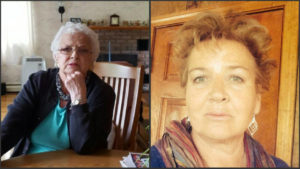
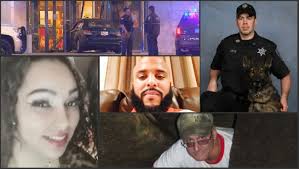
Between these horrible events and recent others such as “mass shootings” and “acts of terrorism”, I believe the need for medical training and mental preparation cannot be over emphasized. Let me leave you with one last example that was close to home for me, and got national coverage: The Boston Marathon bombings. Multiple casualties from shrapnel and the explosions themselves. Remember that? Tourniquets and individuals stepping up to make a difference saved lives that day. This was the perfect example of a Mass Casualty incident (over 100 victims).

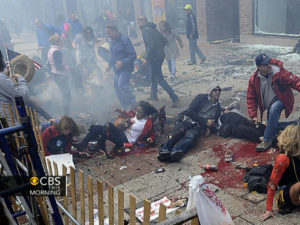
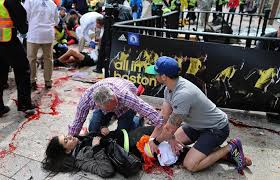

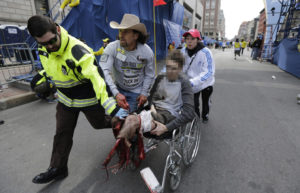
Perhaps you may be able to avoid a situation…. perhaps not. What other incidents can you think of where medical training may have saved lives? With the classes that are available, I think it’s a good investment. From a basic CPR or first aid course, Tactical Combat Casualty Care (TCCC), or EMT programs (check with your local board of health, or local programs), furthering your education to help save a life is invaluable. Don’t you think?

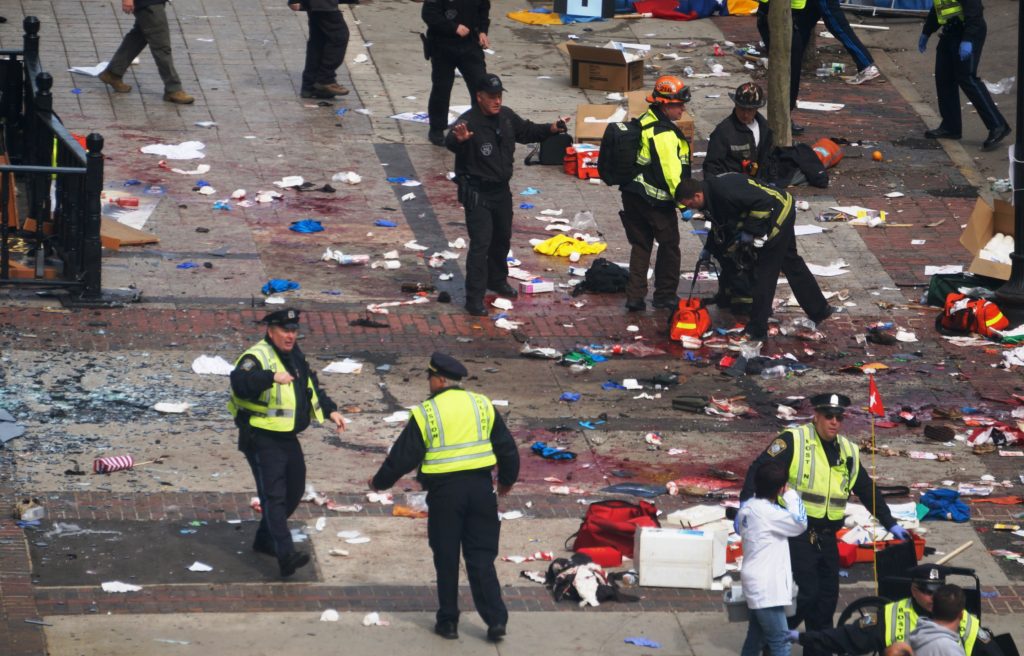
You must be logged in to post a comment.